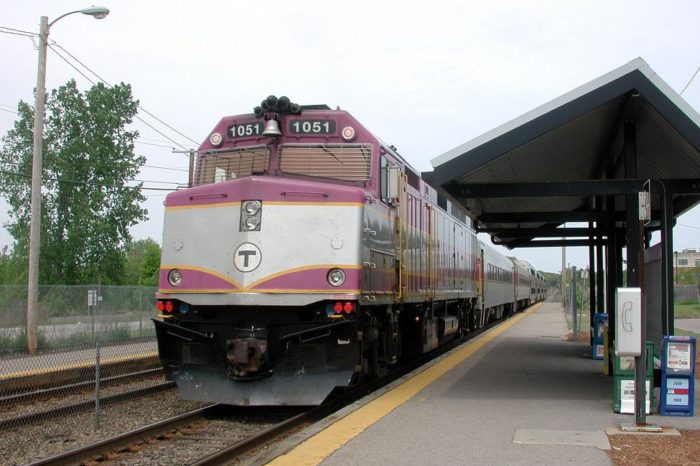Fed up with Faulty Fare Collection
The Problem: Angry Customers and Less Revenue
Last Saturday was a busy day in the Hub. With the Boston Pride Parade and a Red Sox game both in full swing by midday, commuter rail lines were packed with people flowing into the city. Pioneer Institute learned that on at least one crowded Worcester/Framingham train, fares went uncollected. That means a free pass for much of the weekend crowd, who are less likely to hold monthly passes than daily commuters.
Saturday’s lapse is not an isolated incident. In fact, inconsistent fare collection by conductors is a growing commuter rail complaint. For a daily commuter who pays between $75 and $362 for a monthly pass, it’s highly disturbing to see others ride for free – especially when T officials complain of underfunding. As we learned this past winter, the MBTA that cannot afford to forego revenue, so complaints about inadequate fare collection should not be taken lightly.
The MBTA has come under harsh scrutiny for its oversight of the commuter rail, especially after it was crippled by last winter’s snow. Keolis, the commuter rail operator, has also faced stiff public scrutiny for a host of reasons, including abysmal on-time performance, poor communication to riders, and irking pass-holders by not collecting fares.
Nevertheless, the MBTA keeps writing checks to Keolis. According to Massachusetts Open Checkbook, the MBTA has paid the company nearly $182 million since the contract started last July. Because of substandard operating practices, Keolis has also been heavily fined. The Boston Globe reported the company was hit with $4M in fines since the contract’s inception. More recently the Globe reported that Keolis North America is losing money on its contract with the T.
Why There is no Incentive for Fare Collection
Fines for not collecting fares are minimal and enforcement is challenging. According to the operating agreement between the MBTA and Keolis, the company is fined a paltry $500 for non-collection—if they get caught. The MBTA apparently didn’t catch them much: they were fined only $4,500 from October to December – the cost of about 18 passes.
Really.
This equates to just nine instances in which the MBTA could document a failure to collect fares. According to the Boston Globe, in February alone there were 73 complaints about lack of fare collection on the commuter rail, but no fines were levied that month for lack of fare collection. And there’s no good way of calculating foregone fares because audits and rider counts are sporadic.
The result is that people ride for free – lots of them – and the T has no idea how much money was left on the table.
With such a loosely controlled system and minimal fines, where is the real incentive for Keolis to collect? In addition to miniscule fines, there is also a monthly cap at around $800,000 on penalties. The cap gives Keolis its own free ride, which adversely affects both rider satisfaction and the MBTA’s pocketbook.
Fare Collection Per the Operating Agreement
How precisely is Keolis collecting fares on the commuter rail? The fare collection policy, as outlined in the operating agreement, states:

The fare collection procedures Keolis included in its bid to operate the commuter rail system received an “Acceptable” rating from the MBTA, as found on the T’s website.
We’ll be digging into this deeper, so stay tuned.
Check out Part II of this post here.
Sabrina Chishti is a Transparency Intern at Pioneer Institute from Tufts University majoring in biology and political science.




